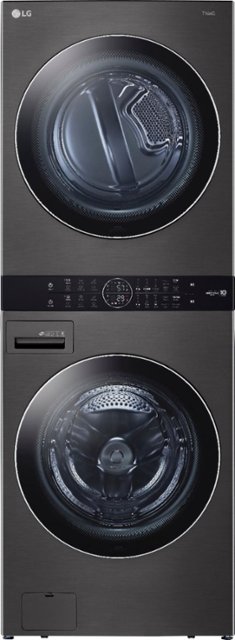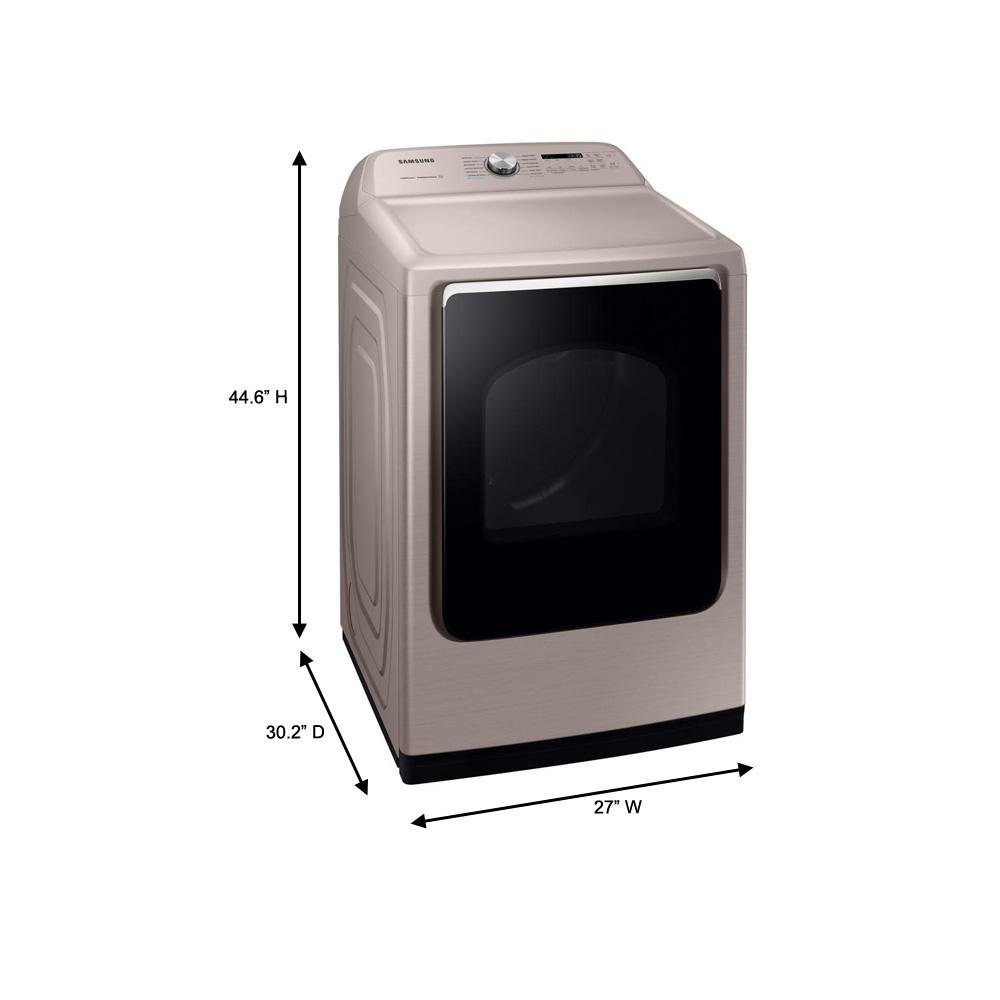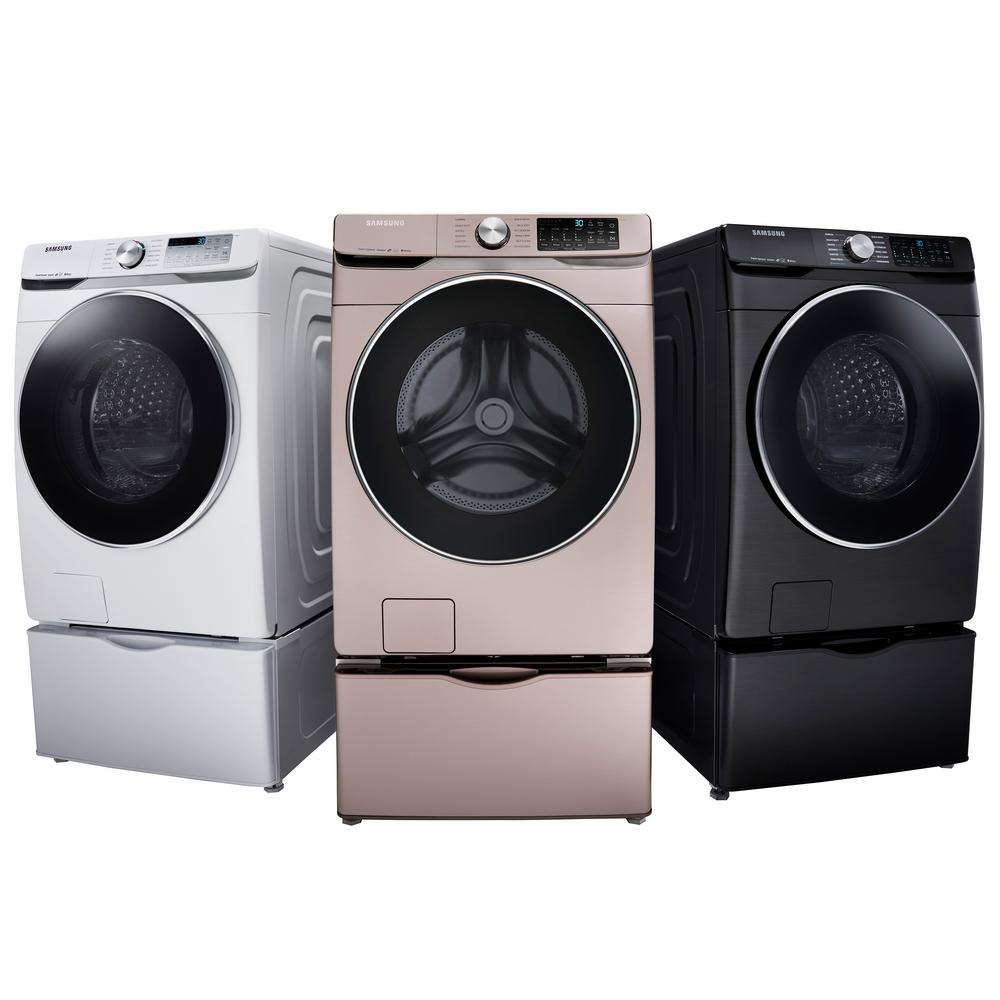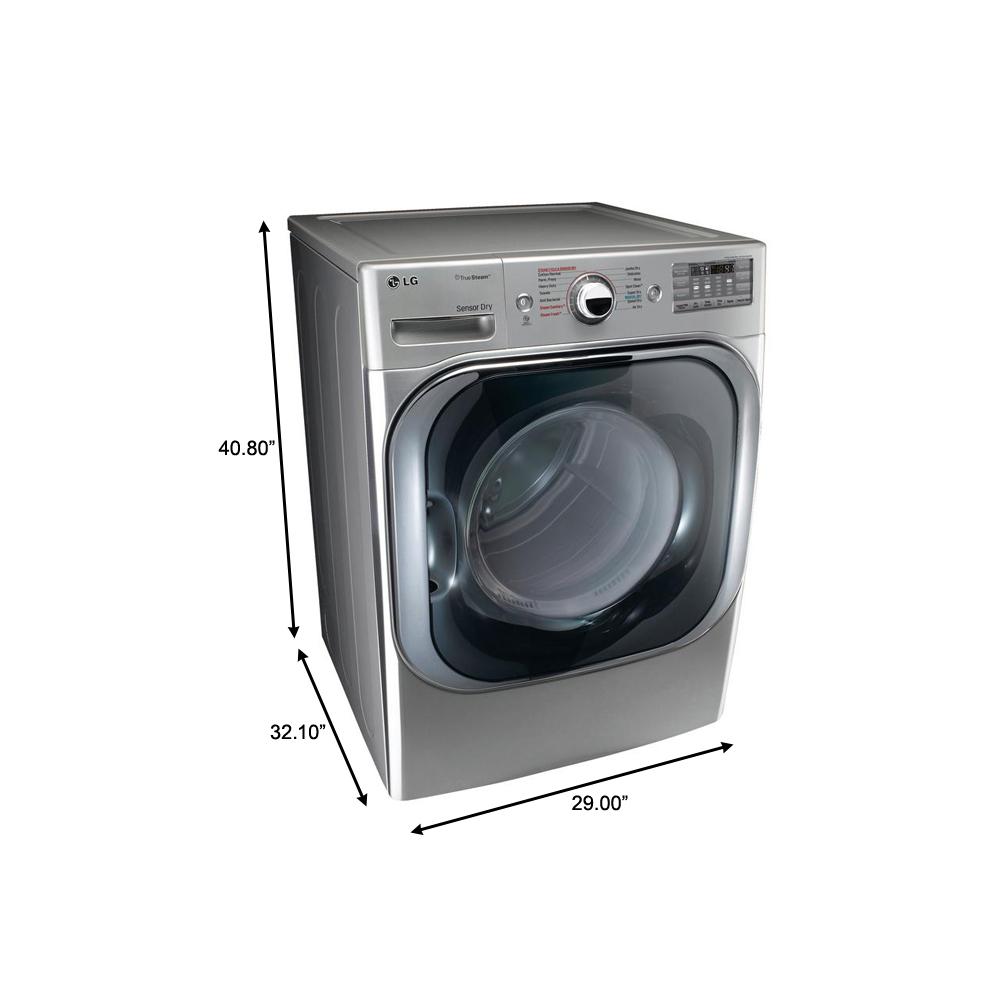Ultra Large Capacity 4.5 cu.ft. Washer and 7.4 cu.ft. Dryer (WashTower™)
Get It All Done In Less Time. Ultra Large Capacity (4.5 cu. ft. in the washer and 7.4 cu. ft. in the dryer) means you have even more room to do laundry in fewer loads.
Single Unit WashTower™ Design
This vertical laundry solution puts everything within reach. Full-size capacity and features with a centralized control panel for the easiest access ever.
Built-In Intelligence
Built-in intelligence takes out the guesswork— AI technology can select optimal wash & dry motions and settings. Washer can auto-select a compatible drying cycle.
Advanced Washing & Drying
From ultra-large capacity to top-of-the-line innovations, the LG WashTower™ delivers the advanced cleaning performance you need.
AAFA Certified LG Washer
AAFA certified LG washers with the Allergiene™ Cycle use the power of steam to remove over 95%* of pet dander and dust.
*Based on certification by the Asthma and Allergy Foundation of America (AAFA)
ThinQ® Technology with Proactive Customer Care
The ThinQ® App controls laundry remotely & Proactive Customer Care sends maintenance tips & alerts.
Tempered Glass Doors
Real tempered glass doors provide a sleek, stylish look that also resists shock and scratches.
Direct Drive Motor 10-Year Limited Warranty (Washer)
Backed by a 10-year limited warranty, the LG Direct Drive Motor delivers peace of mind with every load. Fewer moving parts means less noise and vibration, greater stability and durable performance you can depend on for years to come.
ENERGY STAR® Certified
Get additional savings that add up with each load without sacrificing performance.
FlowSense™ Duct Clogging & Lint Filter Indicators (Dryer)
With the FlowSense™ Duct Clogging and Clean Filter Indicators, you’ll know when it’s time to clean the ducts and the lint filter out to ensure great drying every time, lower utility bills and fewer service calls.
NeveRust™ Stainless Steel Tubs
Unlike tubs made from porcelain or plastic, the full stainless steel tubs avoid the chips and nicks that can snag fabrics and ruin clothing.
TubClean System (Washer)
Thoroughly cleans and dries the tub, door and gaskets with the press of a button.
TrueBalance™ Anti-Vibration System (Washer)
Keeps even big loads in balance to reduce washer noise and vibration.
LoDecibel™ Quiet Operation
Designed for quiet operation, run the washer or dryer without interrupting naptime or your favorite show.
Wrinkle Care Option (Dryer)
Periodically tumbles dry for up to 3 hours after the cycle is done to help keep wrinkles at bay.
SpeedWash™ Cycle (Washer)
SpeedWash™ Cycle gets small loads clean and refreshed in just 15 minutes.






by Jennifer
LOVE our LG washer & dryer! Took a minute to get used to the low washer but it’s a great machine – perfectly sized & clothes dry very quickly! Only wish was more cycles on the machine instead of the app.
by Chris
We purchased this washer dryer combo about a month ago. So far it’s awesome! It is the perfect space saving unit.
by Todd
Works amazing! Staff at store was very helpful and their installation team showed up on time, very professional and made it an easy installation.
by Steve
I really do love this LG stacking washer/dryer combo.
by Daniel
Loving my washer and dryer after two months of A nonworking washer dryer great purchase.
by Terry
Wish the side knock out for the dryer vent was real instead of for show.